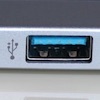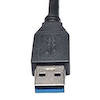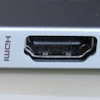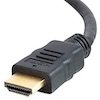Architecture (ARCH) - Personal Computing Guidance
content last updated 10-3-2023
To succeed and thrive in their studies and the industry, students majoring in Architecture (ARCH) must be agile and mobile, equipped and prepared to create, edit, present, and collaborate in multiple locations on and off campus.
PERSONAL LAPTOP
With this in mind, students are required to have and maintain a robust personal laptop equipped with the software necessary for their coursework and to effectively engage with their peers, instructors, and community partners.
A responsible Architecture student keeps their laptop in good working order by...
- taking measures to protect it from damage and theft.
- regularly backing up their files.
- routinely deleting files they no longer need.
- only installing software from reputable sources.
- uninstalling applications that they no longer use.
- installing antivirus software and keeping it up to date.
- regularly installing application updates.
- regularly installing Windows system and security updates.
- routinely restarting their laptop, at least once a week, as a preventive measure.
Note: In late 2020, Apple began selling Macs equipped with ARM processors -- also known as "M1" or "Apple Silicon" processors -- instead of Intel processors. Since some applications (specifically Revit, ArcGIS, and Enscape) only run in Windows, and since the ability to run Windows in an emulator on a Mac with an ARM processor is still in the early stages of development*, the Architecture program advises students to have a Windows-based laptop.
Sources:
Apple announces Mac transition to Apple silicon (6/22/2020)
Apple is switching Macs to its own processors starting later this year (6/22/2020)
SOFTWARE
You do not need to acquire or install software until your instructor advises you to do so.
The Architecture program formally introduces students to industry-standard software in these elective courses:
| Course | Recommended Semester | Software * |
|---|---|---|
| Computer Aided Design and Drawing, a.k.a. CADD 1 |
1st year, Spring semester or 2nd Year, Fall semester |
AutoCAD Adobe Creative Cloud SketchUp Pro (incl. in SketchUp Studio) Rhino |
| BIM & Applications | 2nd year, Fall semester or 2nd year, Spring semester |
Revit Enscape for Revit |
*Some software in this list is available for either macOS or Windows. The Windows versions are preferred.
Although these courses are electives, students are expected to utilize this software in some required Architecture courses. Architecture majors should either enroll in these elective courses at the appropriate time (consult with your Architecture advisor) or take the initiative to learn these applications on their own with free access to LinkedIn Learning (see below).
LINKEDIN LEARNING
All USF students have free access to LinkedIn Learning, a software training website that offers self-paced, online training in many of these applications.
The Architecture program highly encourages students to take advantage of their access to LinkedIn Learning to begin learning AutoCAD and SketchUp (either the Free or Pro version) prior to enrolling in CADD 1.
Access LinkedIn Learning through myUSF
Getting Software
You do not need to acquire or install software until your instructor advises you to do so.
Most of the software an Architecture major may encounter while earning their degree is listed below. All of it is available for free or at a discount:
| Title | Runs on a Mac |
Runs on a PC |
Source | Student Price * |
LICENSE TYPE |
|---|---|---|---|---|---|
| Microsoft Windows | Y 1 | Y | learn how to connect to Microsoft Azure for Students (log into myUSF first) » | Free | Subscription (requires yearly renewal of student status) |
| AutoCAD | Y | Y | Autodesk » AutoCAD | Free | Subscription (requires yearly renewal of student status) |
| Revit | (Y) 2 | Y | Autodesk » Revit | Free | Subscription (requires yearly renewal of student status) |
| ArcGIS (installed) | (Y) 2 | Y | USF Environmental Sciences Department: gsal@usfca.edu | Free | Subscription (requires yearly renewal of student status) |
| ArcGIS (via Apporto Virtual Desktop) | Y 3 | Y 3 | request account from Environmental Sciences <gsal@usfca.edu> then log into Apporto Virtual Desktop | Free | Perpetual (while enrolled at USF) |
| SketchUp Free | Y 3 | Y 3 | SketchUp | Free | Perpetual |
| SketchUp Studio (includes SketchUp Pro) |
Y | Y | Creation Engine » SketchUp Studio | $55 / year | Subscription (requires yearly renewal of student status) |
| Adobe Creative Cloud (includes 20+ apps including Photoshop, Illustrator, InDesign, Premiere Pro, and Acrobat) |
Y | Y | Adobe | $240 / year for the first year, then $360 / year (can be paid monthly, but annual contract still required) 4 | Subscription (requires yearly renewal of student status) |
| individual Adobe apps | Y | Y | Adobe Creative Cloud Plans & Pricing » click "Individuals" tab » click "See plan & pricing details" under the app » select "Monthly plan" | $31.50 / month with no contract for a major app; no student discount | Subscription |
| Rhino | Y | Y | Rhinoceros | $195 new / $95 upgrade | Perpetual for life of purchased version; upgrade purchase required for new versions |
| Enscape (for SketchUp, Rhino, and Revit) | (Y) 2 | Y | Enscape | Free | Subscription (requires renewal of student status every 6 months) |
| Sophos Home (anti-virus software) | Y | Y | Sophos | Free | Perpetual |
| Zoom | Y | Y | myUSF | Free | Perpetual |
* prices last verified November 2021
3 runs in a web browser; no installation required
4review the terms and conditions for Adobe Creative Cloud for Education, including cancellation terms »
LAPTOP BUYING ADVICE
Hardware requirements
We recommend:
- A Graphics Card with 4GB of RAM (minimum)
- 16 GB RAM (minimum)
- Minimum 512 GB SSD HD (minimum)
Computers We Recommend
Make sure to check that you have selected the minimum specs above.
- Dell Precision 3590 or 5490.
- ASUS ProArt P16 (H7606
STUDENT DISCOUNTS
Many computer makers offer discounts to students, including USF's preferred vendors, Dell and Lenovo. Take the time to inquire as you shop and be prepared to verify your student status during the checkout process.
USF KNOWLEDGE BASE: "Am I able to purchase a personal computer through USF at a discount?"
While Apple laptops with Intel processors remain available, this is strictly a personal preference, because you will be able to install Microsoft Windows on it using "Boot Camp Assistant" in order to run both Mac and Windows software.
Screen Size
The bigger the screen, the larger and heavier the laptop will be (and usually the more expensive), but the easier it will be to work in applications with user interfaces that take up a big portion of the screen. Screen size is really a personal preference. Some people don't mind a small screen. Others might like a small screen for portability reasons, but connect their laptop to a large, external display on their desk at home.
Memory
The more memory your computer has, the more tasks it can perform simultaneously before it starts to slow down; for example, more open applications, more open browser tabs, or more open files.
Advice: Invest in a minimum of 16 GB, but go for 24 GB or even 32 GB if your budget allows.
Note: You cannot add more memory to many laptop models after purchase, including all current Mac laptop models as of this writing, so think long-term.
Internal Storage
The more internal storage your computer has, the more stuff -- applications, files, photos, etc. -- you can store on it, and the more free internal storage space you'll have, which allows your computer to run more efficiently. In addition, the type of internal storage matters.
Advice: We recommend a drive that's at least 256 GB in size, but if your budget allows, aim for 500 GB or more. We also strongly recommend a "solid state drive" or "SSD". It makes for a significantly speedier and more responsive laptop than a traditional hard drive.
Note: Although you can always connect an external drive, it's not possible to upgrade the internal storage drive of many laptop models after purchase, including all current Mac laptop models as of this writing, so think long-term.
PROCESSOR SPEED AND NUMBER OF CORES
Think of the processor or "CPU" as your computer's brain. The faster the speed of your CPU, the faster your computer can "think". The more cores your CPU has, the more instructions it can receive and process at once.
Advice: In general, the number of cores that your processor has contributes more to the speediness of your laptop than your processor's speed. So don't invest too much in a slightly faster processor, but do invest in a processor with as many cores as your budget will allow.
Note: For most laptops, it's not possible to upgrade to a more powerful processor after purchase, so think long-term.
Graphics Processor
The faster your graphics processor unit or "GPU", and the more memory that GPU has, the faster your computer can update what's on your screen and perform graphics-intensive tasks like modeling, rendering, video editing, animation, effects and filters, etc.
Advice: If it's within your budget, opt for a laptop with an advanced GPU. Some laptops have less powerful, "on board" GPUs, while others have more powerful, separate, a.k.a. "discrete" GPUs. Some laptops even have two GPUs installed, i.e. a less powerful "on board" GPU for when you're on battery power and a more powerful, power-hungry "discreet" GPU for when you're plugged in. In addition, GPU's have their own on-board memory separate from your computer's memory, typically somewhere between 2 GB and 8 GB. The more memory, the more efficient the GPU.
Note: For most laptops, it's not possible to upgrade to a more powerful GPU after purchase, so think long-term.
ADAPTERS
If your laptop doesn't have the ports below built into it, consider investing in one or more adapters so that you'll be prepared to connect a device to a port on your laptop no matter where you are:
| PORT NAME | COMMON DEVICES | IMAGE OF PORT | IMAGE OF CONNECTOR |
|---|---|---|---|
| USB Type A a.k.a. Standard USB |
printers, scanners, flash drives, portable hard drives, mice, pen tablets |  |
 |
| HDMI | projectors, televisions |  |
 |
FINANCIAL AID
If you qualify for federal financial aid and have not already accepted the annual maximum in federal student loans that have been offered, you may request an increase in the federal student loan of up to $1,7501 to assist you with the purchase of the laptop and software.
Financial aid can be used at the USF Bookstore for technology purchases (hardware and software).
You do not need to purchase a laptop or software at the USF Bookstore to qualify for additional aid. If you purchase your laptop or software at an outside retailer, you can complete a form from USF’s financial aid office for a loan refund of up to $1,7501. Be advised that a loan refund will not be made available to you until the week before classes begin. To request this form, send an e-mail to financialaid@office.usfca.edu.
1 as of June 2020
Visit the USF Bookstore page for new students and parents
LEARN MORE ABOUT FINANCIAL AID RESOURCES AT USF
TECHNICAL SUPPORT FOR PERSONAL LAPTOPS
ITS Help Desk
The ITS Help Desk can help you troubleshoot technical problems with your personal laptop, including but not limited to questions concerning:
- ITS eStore
- Microsoft Azure for Students
- USF-Wireless network
- your myUSF username and password
- Google Workspace a.k.a. DonsApps (including USF email and Google Drive)
- Sophos Anti-Virus
- Canvas
- Zoom
- Pharos printing
VIEW ITS Help Desk hours and locations
Director of Art + Architecture Technology
The Director of A+A Technology is happy to offer advice and guidance when it comes to keeping your personal computer in good working order, backing it up, and installing the software you need. Their hours and contact information are in the contact box in the top, right portion of this webpage.